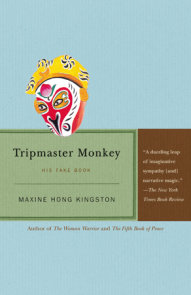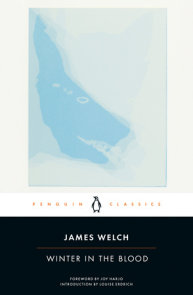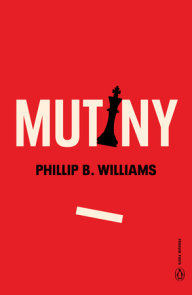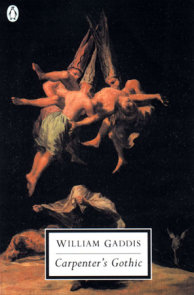READERS GUIDE
Questions and Topics for Discussion
INTRODUCTION
At the turn of the century in the Russian shtetl of Holeneshti, Reizel and Leibel, two young lovers, long to leave their confining life behind. They are seduced by a visiting theater troupe and its promise of fame, fortune, and freedom; and, in the middle of the night, they run away to chase their dreams. So begins Sholem Aleichem’s acclaimed novel Wandering Stars, a story that spans small-town Russia and the big city bustle of New York, the passions of young love and the compromises necessary for success.
The idealistic pair is soon separated by the greedy machinations of the troupe’s competing managers, who see the artistic promise and lucrative potential of the talented young lovers. While traveling farther and farther away from each other, Reizel and Leibel are transformed into Rosa Spivak, famed singer, and Leo Rafalesco, celebrated actor. They become sensations of the Yiddish theater, charming fans from Vienna to New York City. Their successes do not dim the love Rosa and Leo feel for each other, and as their journeys take them around the globe, thoughts of their childhood romance remain strong.
But Wandering Stars is more than a love story—it is also a wry and affectionate look at the world of Yiddish theater and the Jewish immigrant experience. Written in a colloquial and confidential voice, the novel exposes the ambition, creativity, hard work, and hard luck of a group of people whose greatest love is life on the stage. Sholem Aleichem reveals the intimate thoughts and correspondence of a colorful cast of characters, all the while deflating their pretensions and following their escapades with amusement. The members of the various theater companies are like family—fractious and jealous, yet loving and loyal.
As the troupes move further away from their humble beginnings and toward the great goal of New York City, the members of the company blend old traditions and new-world ways, transforming themselves both on and off the stage. And New York itself, with its bustling subway, busy streets, and lively Lower East Side Jewish community, is as much a character as any of the performers.
Rosa and Leo wander the globe in search of fame (and each other) and when they do finally reunite, their meeting is a joy tempered by reality as success and setbacks are intertwined. Wandering Stars is a compelling example of the artistic breadth and emotional weight of Sholem Aleichem’s writing, and ample evidence as to why his fans have loved him and his work for over a century.
ABOUT SHOLEM ALEICHEM
Born Sholem Rabinovich in 1859 in Pereyaslav, Ukraine, Sholem Aleichem rose from humble beginnings to become one of the most celebrated writers of Jewish fiction. Sholem Aleichem is known for his love for the common people and his concern for their struggles, and the Hebrew translation of his pen name, “peace be with you,” is a reflection of those sentiments. While his writing focuses on the travails common to the Jewish masses at the turn of the century, his style, wit, and eye for the foibles of human nature cross cultural boundaries. He once wrote, “Life is a dream for the wise, a game for the fool, a comedy for the rich, a tragedy for the poor;” and his sympathies are forever with the poor and the downtrodden, those who suffer the indignities of life without losing their determination, warmth, or ambition.
An intelligent and scholarly young man, Sholem Aleichem excelled in school and began his career as a tutor before turning to writing and eventually producing over forty works of fiction, drama, and children’s literature. After first writing in Hebrew and Russian, in 1883 he began to write in Yiddish, which was at the time considered a low and unsophisticated language. However, he was convinced that Yiddish deserved respect equal to other European languages and he became its passionate proponent, founding a journal, Di Yidishe Folksbibliotek, to promote and support other Yiddish writers. Due to financial constraints, however, he was only able to produce two editions.
Financial as well as health difficulties plagued Sholem Aleichem throughout his life. In the early 1900s, he left Europe, forced out by pogroms in Russia, and moved to New York City while his family moved to Switzerland. While Sholem Aleichem’s writing resonated with a wide range of Jewish readers, the popularity of his work did not always translate into financial success. Forced to support his family through a series of grueling reading tours, in 1908 he suffered a severe relapse of the tuberculosis he had contracted in the early 1890s. He moved back to Europe and spent the next few years as an invalid.
Sholem Aleichem ultimately enjoyed immense popular (if not financial) success. In 1909 his fiftieth birthday was celebrated around the world, and upon his return to New York in 1914 he was welcomed at Carnegie Hall. He died in 1916 while hard at work on a novel. He was buried in the Mount Carmel Cemetery in Queens, New York. Thousands of people attended his funeral and his will was printed in The New York Times. Thanks to works such as Wandering Stars, Motl the Cantor’s Son, and the many stories about Tevye the Milkman—later adapted into the Broadway and film hit Fiddler on the Roof—Sholem Aleichem’s status as one of the luminaries of Jewish literature has never waned. Every year, his fans commemorate the anniversary of his death with readings of his collected works.
DISCUSSION QUESTIONS




















